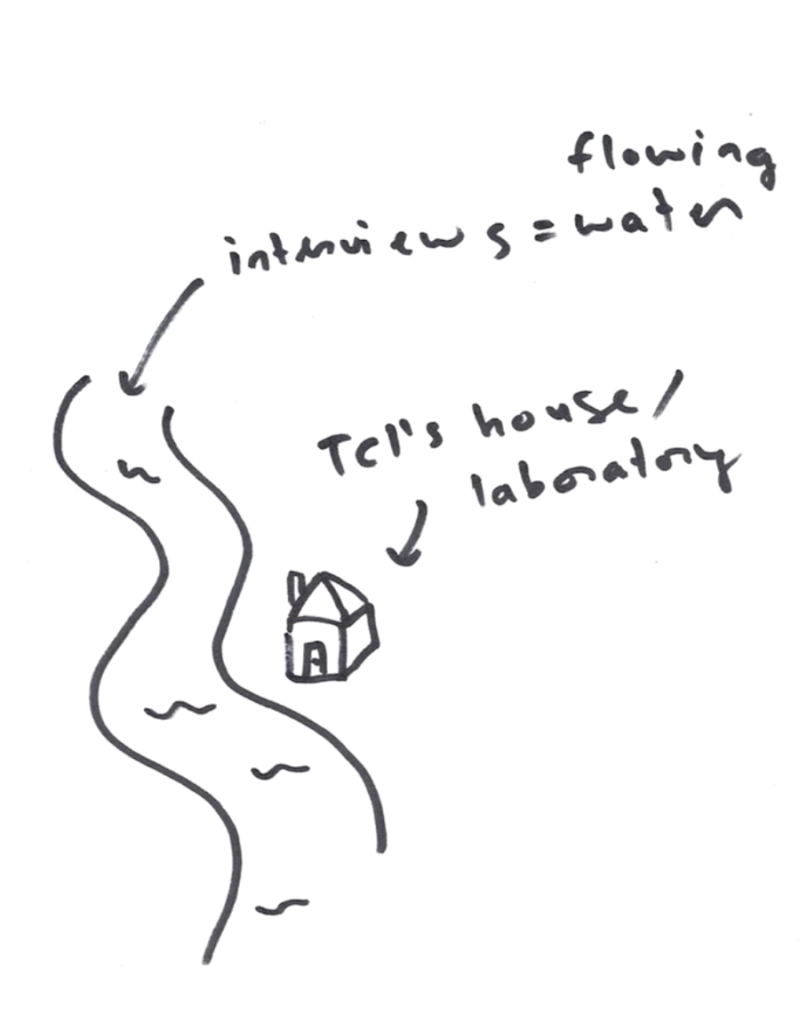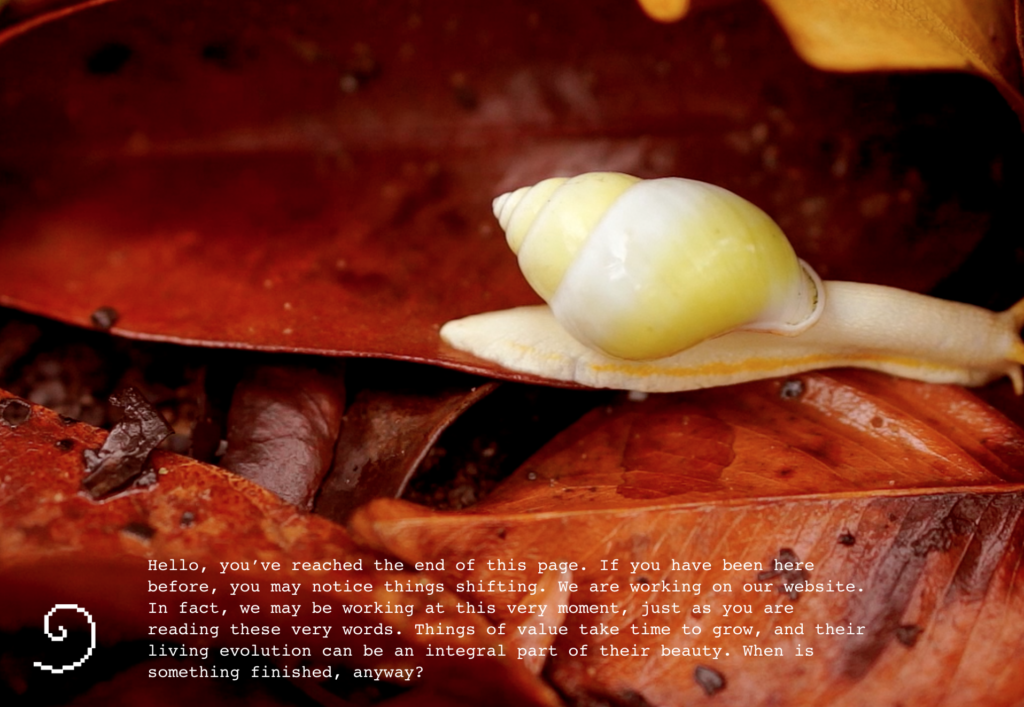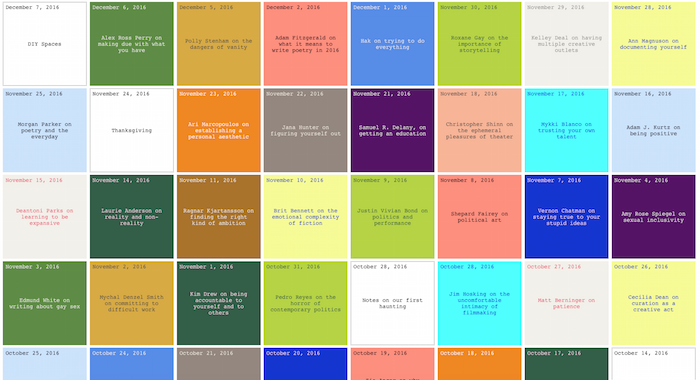The Creative Independent launched in October of 2016, publishing its first original interview with poet Eileen Myles on day one, followed by artist Björk on day two. Out of the gate running, TCI stated its goal: to become a “resource of emotional and practical guidance for creative people.” The publication, embracing the archival nature of the internet, aspires to assemble an oral history of contemporary creative processes and practices. A spring chicken in the world of digital publishing platforms, TCI is technically a Kickstarter project, and an extension of their mission to support and champion the arts, though the site seems to operate as its own ecosystem within the crowdfunding corporation.
The Creative Independent publishes a new interview each weekday. An interview feature begins with a quippy bio, as if the editors are introducing the subject on stage before a reading. Next comes the conversation, and finally, a brief list of recommendations from the subject, which can range from a favorite movie (artist Ragnar Kjartansson suggests Milos Forman’s Amadeus) to a preferred crisis hotline. There’s an option to download the interview as a PDF, so the reader can hang on to it for future reference or, in theory, tape it right into their field notes. The design of the platform encourages a type of interaction different than how we typically approach an interview on a screen: to navigate TCI feels a lot more like encountering the literary/graphic project WebSafe2k16 than, say, scrolling through Vanity Fair’s Proust Questionnaire.
TCI might be bringing some of journalism’s purity back into the interview format, as a publication that has no dealings with PR pitch e-mails, hype cycles, or banner advertisements. Editor-in-Chief Brandon Stosuy asks his questions without an air of restraint. In an interview with Maggie Nelson, Stosuy asks about her recent MacArthur “Genius” Grant, how the financial award will impact her current writing process, and how she feels about being labeled a genius. His straightforward inquiries yield straightforward answers, and the result is refreshing. Stosuy’s name may ring familiar to you from his posts as Director of Editorial Operations at Pitchfork, and as the music curator for MoMA PS1 and the Broad Museum.
Is TCI a litmus test of how we navigate the internet to read about other people and to glean inspiration today? The transcribed interview is the medium we’re interrogating here, and so I asked Stosuy and Creative Director Laurel Schwulst to interview each other over Slack, while keeping some questions I had in mind.
laurel [4:47 PM]
welcome
brandon [4:47 PM]
hello
laurel [4:47 PM]
what if we talk about the river that is TCI?
brandon [4:47 PM]
i’m into that
laurel [4:48 PM]
ok so… picture this: there is a river, and the water that flows are the daily interviews. the interviews are all about the creative process, which is our focus. and it’s interesting because water is transparent or invisible, and often is this creative process. so we’re trying to illuminate this typically transparent thing so people can learn from it.
and the only way to know the water is to study lots of it, and that’s why we’re being so regimented about one interview per day flowing thru our site.
so the river is our source of life, would you say so?
brandon [4:50 PM]
i think so.
i don’t think we’re building a dam or trying to shift the flow or the river, but i would say that we’re dipping into the river — maybe fishing with a net — and helping to make certain parts of it clearer to people. like, offering smaller samplings, or showing people the beautiful fish or gems we find while fishing.
we’re sifting through something vast
laurel [4:51 PM]
haha
that’s a good point. i also heard the river is pretty fast
brandon [4:51 PM]
it is. i feel like if you jump in, you might get swept away
laurel [4:52 PM]
yeah. so we’re like trying to catch the fish, to show to people
and that’s why we have a house, or you could say our laboratory, by the river.
brandon [4:52 PM]
right. and we don’t want the fish to die
which is why i think it make sense to let people talk to us
and we do less talking
so their stories and advice are still theirs and are still alive
in fact, we should probably be fishing now
…
i think it’s useful to picture TCI as a house by a river, but a house that keeps shifting
you go to it one day, after many days, and notice a new door
or you go back another day, and a window’s widened
so not a cabin that’s finished
laurel [4:54 PM]
why is that? weird weather?
brandon [4:55 PM]
i think because we’re still building it while we live in it
and as we gather more information, it shifts
laurel [4:56 PM]
oh, wow
yeah, information will do that to a house
brandon [4:56 PM]
hahahah
i was thinking about how people talk about water as a source
… a re-source
laurel [4:57 PM]
are we more into fish or water?
brandon [4:57 PM]
hmm
water
laurel [4:57 PM]
yeah. more pure
speaking of pureness, the written word feels pure to me…
why aren’t our interviews podcasts?
brandon [4:58 PM]
they could be podcasts because they all start as conversations
but, for me at least, i like being able to read these conversations
even though i’ve conducted a large number of them, when i go back to the transcriptions, i always learn something
i feel like it can be hard to parse all the information when it’s spoken, or passed along as audio
for me at least, it sticks more when written
what about you?
laurel [4:59 PM]
yeah. you can probably more easily scan it, and more easily start in the middle?
brandon [4:59 PM]
definitely. you can find different entry points
and it allows us, too, to parse the information on a larger scale
so if someone is searching for something very particular, they can find it more easily
we want to be a resource.
we’re growing an archive, too
but this is the best presentation for the resource part of our brains
laurel [5:00 PM]
yeah. a snail once told me we wanted to be a wikipedia for the creative process
brandon [5:00 PM]
i tend to trust snails
they have no real reason to lie
they’re also slow
relatively speaking
and i think reading slows you down
“snail mail”
TCI sends letters in the mail
laurel [5:01 PM]
in the real mail?
or just e-mail?
brandon [5:01 PM]
for now we use email, but i’d like to start inviting people to our events via real mail.
i do like email, though
you do, too
why do you like it?
i mean
not like the daily email grind
but the idea of controlling an inbox
when you choose to receive something
laurel [5:03 PM]
yeah. that’s a good question. i like the flexibility email gives. and that it gives you a copy of the thing shared. with other social networks, you don’t own a copy. and therefore it’s easy to lose track of it, or for it to get deleted…
what are your favorite type of emails?
brandon [5:04 PM]
i like short emails from people you talk to everyday. like, when someone will write three or four words to remind you to do something. but i also like emails that pop up from friends you haven’t spoken to in a long time. i’m less into email that’s trying to sell me something, or to get me to write about something. I don’t like publicist emails. what about you?
laurel [5:07 PM]
that’s a nice broad spectrum of appreciation. even though sometimes i believe short emails should be texts, i can’t deny their poetic qualities. especially when they’re from someone whose presence brings you joy! but yeah, i find great pleasure from long threads with new friends, usually people i’ve never met before. i’ve had some really amazing friendships develop that way
after you’ve interviewed someone, is it easy to tell what the “fish” is? or does it take a while to process?
brandon [5:09 PM]
you’re right. those long threads can be illuminating. that’s how we book most of warm up at moma ps1 — giant email threads full of jokes and asides, but also good ideas. i’m always amazed the process works
but, yeah, sometimes the “fish” is obvious, and other times it takes additional fishing, in the editing process
i’ll read through the transcript and notice something i missed, or something that seemed basic when they said it, but has greater resonance on paper
sometimes you think you came back with nothing
laurel [5:10 PM]
yeah. changing medium seems to make you realize things anew
maybe that’s another reason we do written interviews
i wonder what percentage of our life is email
brandon [5:14 PM]
i had a question
“What is the benefit of publishing Evergreen material all the time?”
laurel [5:14 PM]
good question…
i think we have the benefit and privilege of not being forced to make money off the typical cultural tides. and since we’re building a resource, we want something that can be useful 5, 10, even 100 years into the future…
brandon [5:16 PM]
i agree. we’re less worried about traffic, and more worried about making sure we’re a useful resource
so it’s more about refining what we do based on our statement of intent
and to create an archive/database/whatever that has use in the long-term
i think that’s why we’re interested in Evergreen material
it also allows us to step a bit outside of the everyday
laurel [5:17 PM]
yeah, certainly
anything else we should talk about?
brandon [5:18 PM]
hmm
laurel [5:18 PM]
i liked that part about the house shifting because of information
still thinking about that haha
one thing we’re trying to do more and more is make more visible TCI’s own evolution and process. it’s nice we’re using the medium of the internet for now, a medium that allows things to gradually evolve over time. deciding how to document or not document that change, and the attitude we have towards presenting it, will make things come full circle.
brandon [5:18 PM]
yes, completely.
ok, maybe one more question?
“In what ways is TCI a reaction to the other publishing entities?”
for me, i feel like we’re our own little thing
and i’m not all that concerned about other publishing entities
i enjoy some, and don’t enjoy some
but i’m focused on TCI as it’s own self-sustaining system
or it’s own little world
and i’m happy to be on that particular planet
laurel [5:23 PM]
yeah. i definitely see it as its own little world too
we are very lucky
bstosuy [5:23 PM]
agreed. we are
ok, cool
laurel [5:24 PM]
yeah, ok, cool



